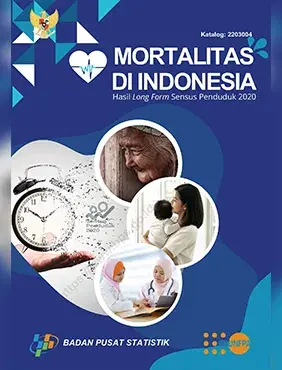The 2020 Population Census (2020PC) marks a significant milestone as the seventh modern census conducted in Indonesia since the nation gained independence in 1945. Building upon the previous censuses conducted in 1961, 1971, 1980, 1990, 2000, and 2010, the implementation of 2020PC is a crucial step in fulfilling the requirements set forth by Law Number 16 of 1997 concerning Statistics and the recommendations of the United Nations (UN).
To address the challenges posed by Indonesia's rapidly changing social and population dynamics, the 2020PC introduces several new innovative approaches not utilized in previous censuses. One notable innovation is adopting a register-based census that integrates population administrative data produced by the Directorate General of Population and Civil Registration (Ditjen Dukcapil), Ministry of Home Affairs, with traditional census data collection methods. This approach ensures a more comprehensive and accurate population representation, especially as the data collection was conducted during the COVID-19 pandemic. Additionally, implementing the web-based Population Census addresses the evolving needs of a mobile society, especially during the pandemic, while addressing concerns regarding data security and government transparency.
The implementation of 2020PC is divided into two distinct stages: Short Form data collection and Long Form data collection. The Short Form data collection aims at gathering essential information on the entire population through a simplified questionnaire. This process focuses on obtaining data on the number of residents and their key characteristics. Following this, the Long Form data collection was conducted as a continuation of the Short Form data collection, utilizing a more detailed and complex questionnaire to delve deeper into specific aspects of the population. By employing these innovative methodologies and approaches, 2020PC strives to provide a comprehensive and accurate representation of Indonesia's population, enabling policymakers and researchers to make informed decisions based on reliable data.
The COVID-19 pandemic, declared by the World Health Organization (WHO) in early 2020, posed a significant challenge to the implementation of 2020PC from a budgetary and technical standpoint. In response, the 2020PC implementation team adjusted their strategy to optimize the use of the refocused budget. This included extending the web-based Population Census period and dividing the enumeration area into three data-collection zones. The Long Form implementation was ultimately postponed until 2022.
Despite the obstacles faced during 2020PC, the project recorded various solutions and innovations that could be useful for future censuses and surveys. To ensure accountability and provide a reference for future endeavours, BPS-Statistics Indonesia, with support from UNFPA, decided to document the 2020PC’s processes, success stories, and lessons learned. The documentation is divided into four chapters for each Short and Long Form data collection, covering the Planning, Implementation, Processing, Analysis, and Dissemination stages. The publication of the documentation will be available offline (printed) and online with technical and detailed information.


